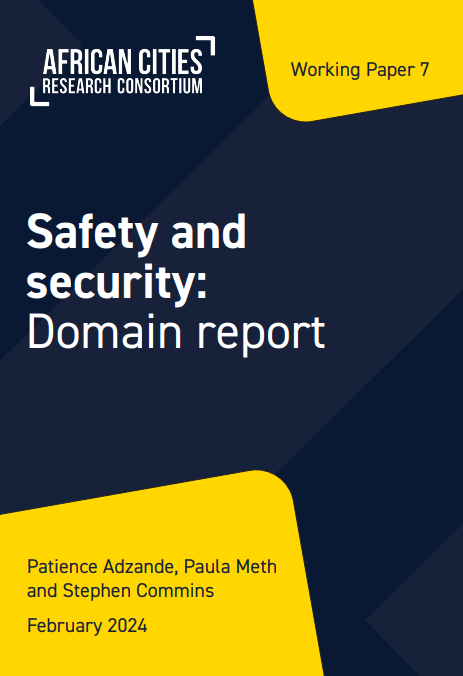Safety and security - Domain report
African Cities Research Consortium - Working Paper 7

This report titled Safety and security - Domain report delves into the vulnerability of residents in six African cities - Nairobi, Bukavu, Freetown, Mogadishu, Lagos, and Maiduguri - to various forms of violence, including crime, political intimidation, threats to property, and gender-based violence. Through mixed methods research, it examines the lived experiences and perceptions of insecurity among urban residents. Safety and security are found to be broad-ranging, touching on political, personal, social, health, financial, environmental, and psychological dimensions. The study reveals diverse notions of insecurity across the cities, with a nuanced understanding brought to light through a lived experience approach.
The findings emphasise the influential role of political elite leadership, patterns of political contestation, displacement, and neighbourhood dynamics in shaping security outcomes. The report identifies intersections between safety and security and other urban development domains, such as informality, land markets, youthhood, and gender. Gender emerges as a crucial axis in the analysis of insecurity. While the report recognises the involvement of various actors, processes, and institutions in security provision, it underscores the essential role played by residents. Moreover, it advocates for more consistent engagement between government officials, the police, and local communities to effectively address safety and security challenges in African cities.
In addition to the working paper, you can access the research summary here.
Abstract based directly on source.


Comments